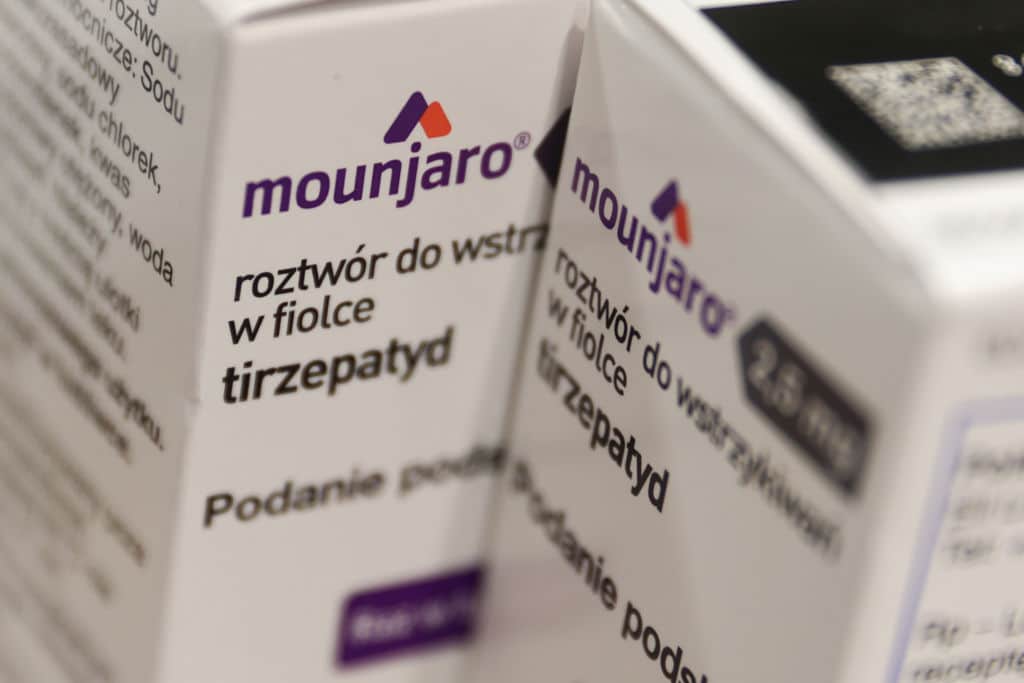Topline
Women with obesity and diabetes taking weight loss and diabetes drugs Mounjaro and Zepbound for over a year lost more weight than their male counterparts—but also experienced more nausea and vomiting, according to new research.
Key Facts
Researchers from Eli Lilly who tracked weight changes for a group of 4,677 people with Type 2 diabetes and obesity found female participants lost up to 24.6% of their body weight during treatment, while males lost up to 18.1% of their body weight.
The participants—2,999 females and 1,678 males—were followed for between 72 and 88 weeks, according to research presented this week at the Annual Meeting of The European Association for the Study of Diabetes.
These participants took different doses of once weekly tirzepatide—the generic name for Eli Lilly’s Mounjaro and Zepbound—shots during this time period.
The researchers noted although safety levels were similar for both sexes, women experienced nausea and vomiting—two of the most common side effects of tirzepatide—at significantly higher rates than their male counterparts.
Loading...
Why Do Women Lose More Weight On Glp-1s Than Men?
“More research is needed to understand the mechanism by which females may experience more weight reduction in these trials,” Dr. Luis-Emilio García-Pérez, lead author and associate vice president of the Diabetes Global Medical Affairs team for Eli Lilly, said in a statement. However, previous research suggests there may be several factors that play a role in the difference of weight loss between men and women who take tirzepatide and other GLP-1 drugs. The differences in hormones between the two sexes may be the reason women lose more weight, according to a 2022 study. A study published last month in the Journal of the American College of Cardiology found women with obesity and heart failure taking GLP-1s lost more weight than male participants, and suggested differences in metabolism may be the reason. “As a general rule, females have more fat in their bodies, and it is distributed in a different way, which may respond to the mechanisms of action of this medication better,” Dr. John Lowe, a gastroenterologist and physician at Restore Care, told Healthline. Lowe went on to add women suffer different societal pressures than men when it comes to body image, so this factor could make women more likely to stick to lifestyle changes—like diet and exercise—while adhering to the drug.
Key Background
Glucagon-like peptide-1 (GLP-1) receptor agonists are a class of drugs used to treat diabetes and weight loss by interacting with the hunger part of the brain to suppress the appetite, and lowering blood sugar and A1C. Two of the most popular GLP-1s are semaglutide (brand name Ozempic, Wegovy and Rybelsus) and tirzepatide, but other drugs in this class include dulaglutide, exenatide, liraglutide and lixisenatide. Tirzepatide is a two-part medication, as it’s a GLP-1 and glucose-dependent insulinotropic polypeptide (GIP), which works with the GIP hormone in the brain to increase insulin production and control appetite.
Big Number
9 million. That’s about how many prescriptions of Ozempic, Wegovy, Mounjaro and Zepbound were written in the fourth quarter of 2022, according to data from CNBC. Nine million people would represent roughly 2%-3% of the U.S. population.
Loading...
